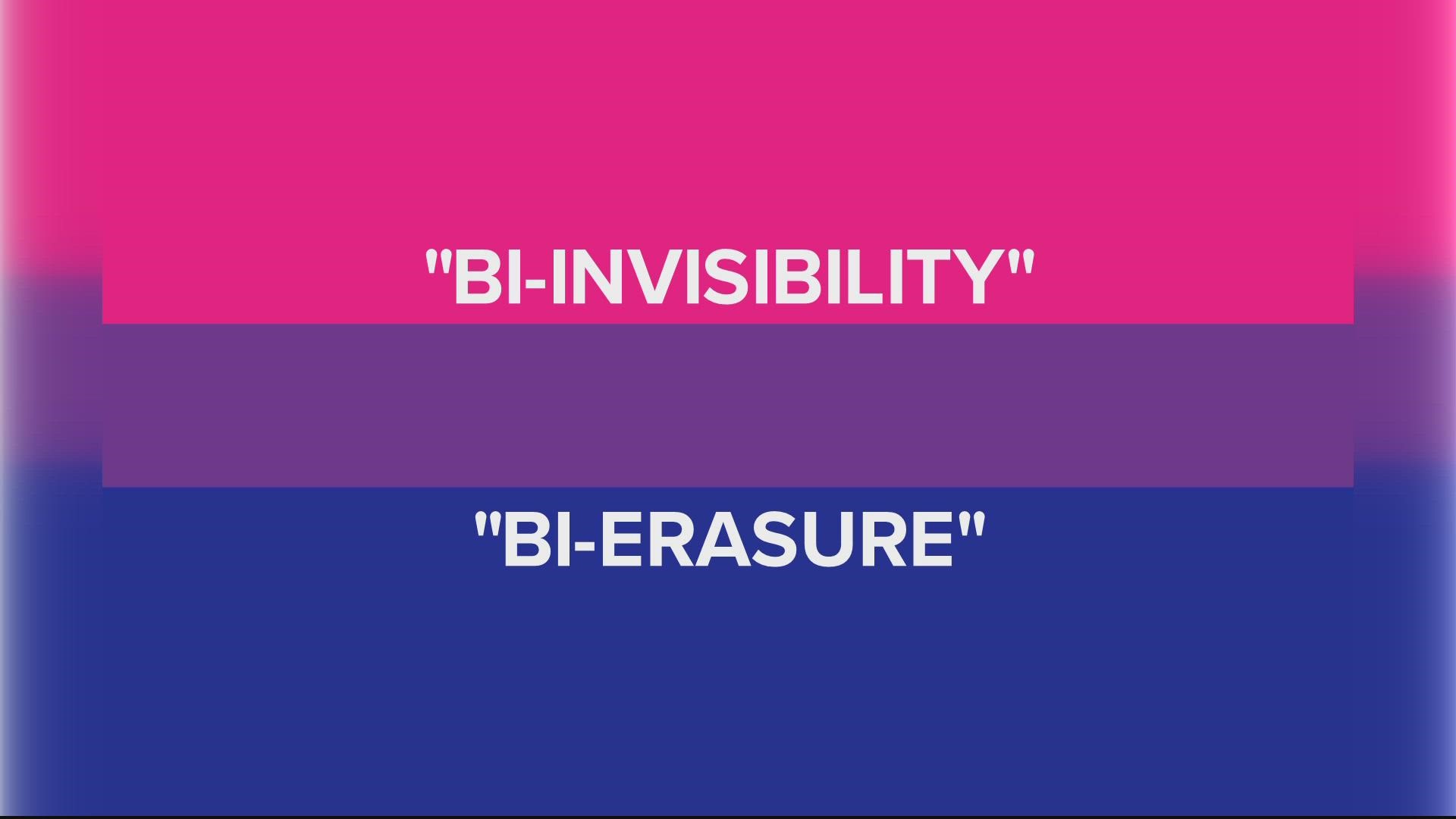WASHINGTON — Jeanne Bjorn came out twice. In 1978, she acknowledged she was a lesbian. But it's only been recent that she said she came out as her truest self.
"I realized that I needed to come out to myself as bisexual, that I have always been bisexual," Bjorn said.
But, Bjorn said, it's been hard for her to come out to her lesbian friends.
"There were a few times that I just said 'I can't even do this,'" she said. "It was sort of like I should go back into the lesbian closet."
Bjorn tied her hesitation in part to the myths and stigma surrounding the bisexual community. Many bisexuals say they experience isolation and misunderstanding about their sexuality, even from others within the LGBTQ+ community.
"I get the standard 'why don't you just pick a side?" said Mrunmayi J. Salil, a woman who said her struggle is compounded by the fact that she has a male partner. "I know for a fact that when I bring him to certain LGBT events, unless I'm very dressed [up], I will get mistaken for an ally."
LGBTQIA+ advocates say many of the stigmas stem from what they call bisexual invisibility or erasure.
Dr. Stephen Forssell, the director of George Washington University's LGBT Health Policy and Practice Program, said bisexuality is erased because people think in black and white terms - no gray areas.
"The LGBTQ community doesn't have a convenient way of conceptualizing what bisexuals are," he explains. "It's just kind of a slippery concept for a lot of people to grasp."
"A lot of people don't believe Bi people exist," David South added. "We don't like things that don't fit into a box. And as bisexuals, we live on the verge between homosexuality and heterosexuality."
That black and white thinking leads many to assume someone is straight or gay, disregarding bisexuality.
"If you see a couple holding hands, a man and a woman - that's a straight couple," South said. "If you see a couple that's a woman and a woman - that's a gay couple. There's no way for two people to appear bisexual. And so, it's very easy to overlook people."
That invisibility is hurting the mental health of bisexual people.
A 2017 report in the Journal of Sex Research found bisexual people had higher rates of anxiety and depression compared to their gay, lesbian and straight counterparts.
"I think when things aren't talked about, you get the message that there's something wrong with it," Bjorn said.
Salil, Bjorn and South all agree that there's a lack of bisexual representation in current society.
"I wish that I would have known more people in my life or celebrities or characters that were bisexual men," South said. "That would have helped me realize that this is how I feel."
Dr. Forssell said increasing bisexual representation -- essentially erasing bi-erasure -- would ease the isolation and stigma for the community.
"The more we make these things visible, the more conversations we have about this openly... the better it goes," South said.

